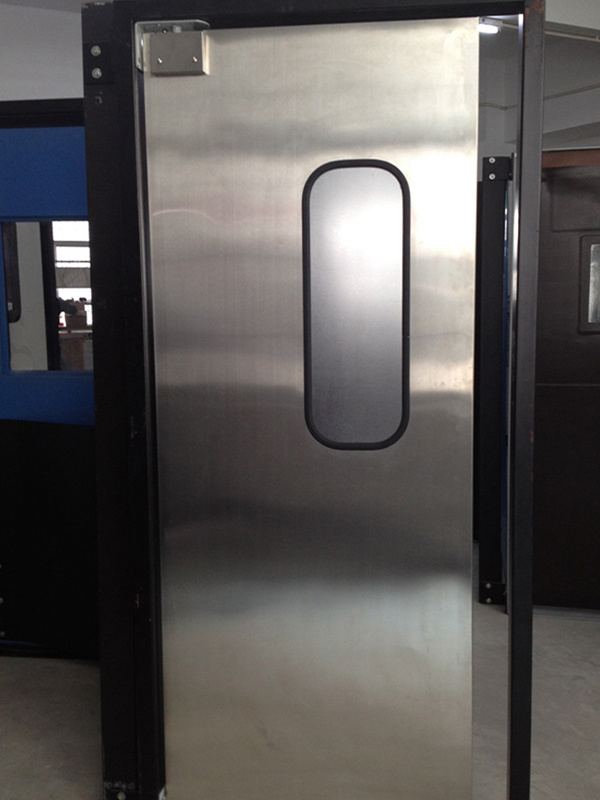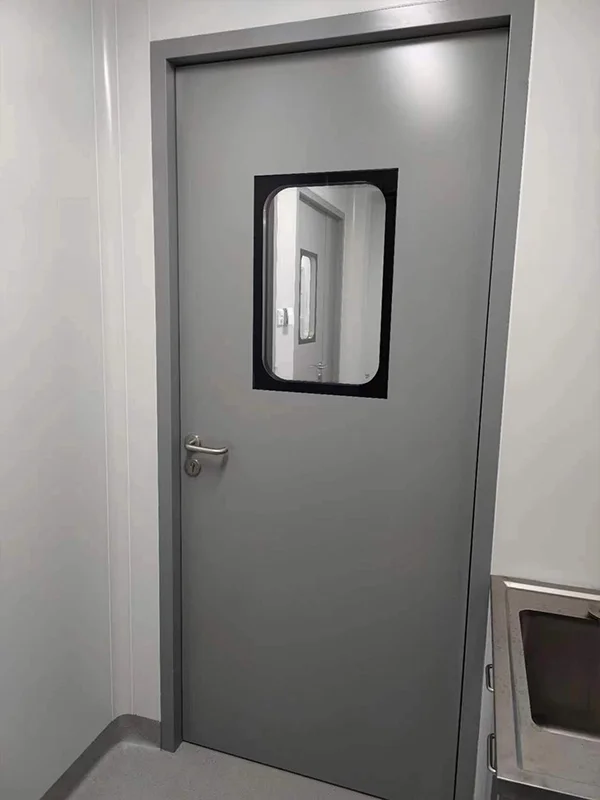The Essential Guide to Cleanroom Door Manufacturers: Ensuring Safety and Efficiency
Apr 26,2025

Cleanrooms are controlled environments where airborne particulate contamination is minimized, crucial for industries such as pharmaceuticals, biotechnology, and electronics. Cleanroom door manufacturers play a vital role in this sector, offering doors that not only comply with industry standards but also facilitate operational efficiency.
When selecting doors for cleanroom applications, it is essential to consider several key factors, including material, design, and functionality. Cleanroom doors are typically made from materials that are resistant to chemicals, easy to clean, and capable of sustaining the specific environmental conditions required. Common materials include stainless steel, aluminum, and high-density polyethylene (HDPE), each chosen for its unique properties that enhance the cleanroom's integrity.
The design of cleanroom doors is equally crucial. Manufacturers often provide options for sliding doors, hinged doors, and even automatic doors. Sliding doors are particularly favored in cleanrooms, as they minimize the risk of cross-contamination by reducing air movement when opened. Manufacturers may also offer customizable designs to meet specific spatial and operational needs, ensuring maximum efficiency in workflow.
In addition to physical characteristics, cleanroom doors must meet rigorous standards for air leakage, which is essential for maintaining the desired pressure differentials within the cleanroom. This is where the expertise of cleanroom door manufacturers comes into play. They are well-versed in the necessary certifications and compliance requirements that govern cleanroom environments, such as ISO standards. Understanding these regulations helps manufacturers design doors that not only fit but also enhance the cleanroom’s operational compliance.
Furthermore, the choice of cleanroom door manufacturers can impact long-term maintenance and durability. Reputable manufacturers offer warranties and support services that are essential for the longevity of the installation. Their experience in the industry often translates into better product knowledge, leading to innovative solutions that can address specific challenges faced by cleanroom operators.
In conclusion, cleanroom door manufacturers are pivotal in ensuring that cleanroom environments remain sterile and operationally efficient. By focusing on high-quality materials, innovative designs, and strict adherence to regulatory standards, these manufacturers provide essential solutions that support the demanding needs of various industries. When choosing a supplier, it is crucial to assess their expertise and ability to deliver tailored solutions that meet both the functional and regulatory requirements of cleanroom applications.
When selecting doors for cleanroom applications, it is essential to consider several key factors, including material, design, and functionality. Cleanroom doors are typically made from materials that are resistant to chemicals, easy to clean, and capable of sustaining the specific environmental conditions required. Common materials include stainless steel, aluminum, and high-density polyethylene (HDPE), each chosen for its unique properties that enhance the cleanroom's integrity.
The design of cleanroom doors is equally crucial. Manufacturers often provide options for sliding doors, hinged doors, and even automatic doors. Sliding doors are particularly favored in cleanrooms, as they minimize the risk of cross-contamination by reducing air movement when opened. Manufacturers may also offer customizable designs to meet specific spatial and operational needs, ensuring maximum efficiency in workflow.
In addition to physical characteristics, cleanroom doors must meet rigorous standards for air leakage, which is essential for maintaining the desired pressure differentials within the cleanroom. This is where the expertise of cleanroom door manufacturers comes into play. They are well-versed in the necessary certifications and compliance requirements that govern cleanroom environments, such as ISO standards. Understanding these regulations helps manufacturers design doors that not only fit but also enhance the cleanroom’s operational compliance.
Furthermore, the choice of cleanroom door manufacturers can impact long-term maintenance and durability. Reputable manufacturers offer warranties and support services that are essential for the longevity of the installation. Their experience in the industry often translates into better product knowledge, leading to innovative solutions that can address specific challenges faced by cleanroom operators.
In conclusion, cleanroom door manufacturers are pivotal in ensuring that cleanroom environments remain sterile and operationally efficient. By focusing on high-quality materials, innovative designs, and strict adherence to regulatory standards, these manufacturers provide essential solutions that support the demanding needs of various industries. When choosing a supplier, it is crucial to assess their expertise and ability to deliver tailored solutions that meet both the functional and regulatory requirements of cleanroom applications.
PREVIOUS:







